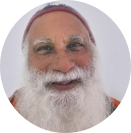Many are truthful. But they do not have the passion for truth. They do not make truth their priority in life. They do not evaluate the credibility of those who transmit truth. The wisdom of Mahatma Gandhi, especially after considering his life to be a continuous experiment with truth, equating, in his later years, truth with God is very poignant. While God is object of faith, truth is an object of direct experience. Truth, freedom, and justice are the fundamental values on which all other virtues are built. Without truth there is no trust. Without trust there is no relationship. And without relationship, there is no human interaction or humanity, for that matter
“I wish you believed me”, said the most significant person in my life. “I want you to believe me too”, said I in response in the context of some substantial disagreement related to a trivial event leading to important decisions. Truth is not believed, but experienced directly. Every truth experience is a direct experience. Truth is gotten only indirectly from believing another person’s experience of truth or perception or evaluation of what may be going on in another person. This other person may be sincere and may be telling the truth. This version of truth is filtered through one’s experiences, and, therefore, very subjective. This person’s truth may be coloured by needs at the time and motivation that is often unconscious. I have seen persons swearing that they were right or did not misplace something to find out later that they were wrong or did misplace. Our mind does play tricks. That is why psychologists are very concerned about one’s motivation and quality of training in observation. Many significant events in life are directed by unconscious motivation. Psychoanalysis or psychodynamic psychotherapy, hypno-analysis or hypnotherapy, and narco-analysis are powerful tools to uncover the hidden but the truth-revealing unconscious. Of course, to engage in these procedures arduous professional training and strict ethical code need to be in place. Informed consent of the person participating in any of these procedures is essential for protecting human rights. Any of these procedures is interactive and consensual, and hence to be initiated by the client for one’s healing and growth. As what is revealed through these procedures cannot be always hundred percent right, corroboration and confirmation by the client from whom the revelation comes is of paramount importance. The court-ordered or coercive narco-analysis or the administration of “truth serum” (administration of psychoactive medications to obtain information from those unable or unwilling to provide it) and the much publicised polygraph (“lie detector tests”) to a party to establish the veracity of an event, for instance, is unethical and, hence, should be prohibited internationally.
We generally believe that our closest relative or best friend to be telling the truth. But their mind may be tricked to believe they are telling the truth while they are not. They themselves may not be aware of their own, often unwitting, hidden agenda, unconscious motives, and biases and prejudices. Hence they may not be morally responsible for their truth that may turn out to be untruths in reality. Can anyone then have absolute truth? The answer is a simple and straight forward ‘no’. Does that mean that we cannot arrive at truth? The answer again is ‘no’. Strict criteria, rigorous observation, consistency in approach, one standard for all, freedom from biases and prejudices, and detachment from desired outcome or results are absolutely necessary for someone who searches after truth. One should be extremely careful about loaded or leading questions in eliciting information. Examples of leading questions are: “It is delicious food, isn’t it? Don’t you know this is hundred percent genuine? From these questions, the answers expected are clear. The questioner expects the respondent to agree. These questions in reality are pseudo-questions that already contain the direction of answers. Truly, one’s credibility is at issue in believing certain type of things. In a particular situation your closest relative may be less credible than a person less acquainted with on account of lack of accurate observation, consistency, internal coherence, reliability, and validity. Truth can be distorted or embellished. What is required is truth and nothing but the truth. If one direct observation of a close person is found to be inaccurate in an emotional situation, other observations of that person can become suspect in similar emotional settings. From my observations and clinical experiences in the USA and India, I have seen relationships break down again and again because one does not give credence to reports from a close one, and stay, on the contrary, strongly with one’s own perception and, above all, conscience. The aggrieved close party feels disbelieved, and that leads to break-down. If an agreeable disagreement can be embraced in good faith in many controversial and disagreeing perceptions, most of the problems can be dissolved, and break-downs avoided. The world certainly is going to be a better place with so much more energy and good will. In other words, accepting the other person to have as much integrity as I have, while according generous benefit of doubt can go a long way in promoting harmony and unity of humanity. There will be real truth, and not just travesty of truth which is worse than no truth. Sometimes the best we have is not truth but some fragments of truth, and plenty of disagreements coming from incompatible perceptions. But then this is often the stuff of life from which beautiful patterns and designs can be woven for a rich tapestry of life. Certainly we can celebrate bliss, no matter what. Let the dead preoccupied with the past bury the dead while we engage a gorgeous present life full of future promises. Because we thrive in the present our future is secured. We need to have passion to arrive at truth at any cost.











